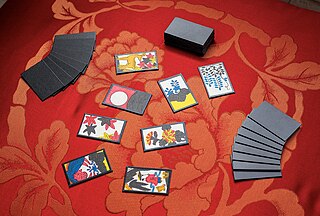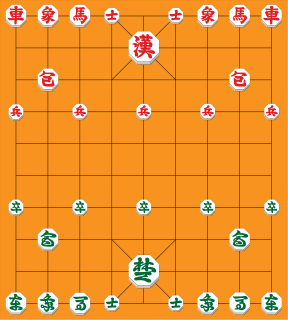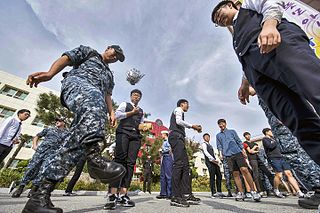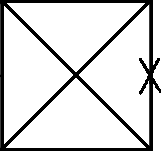 W
WBatoo is a Korean variant of the board game Go. The name stems from a combination of the Korean words baduk (“Go”) and juntoo (“battle”). It is played entirely in cyberspace, and differs from Go in a number of ways, most noticeably in the way in which certain areas of the board are worth different point values. The other principal difference is that both players place three stones before the game begins, and may also place a special “hidden stone”, which affects the board as a regular stone but is invisible to the opponent. It was launched in November 2008; in April 2021 a new server at foh.epizy.com started to manage Batoo games.
 W
WBukcheong sajanoreum is a traditional game in Korea which was selected as the 15th Important Intangible Cultural Properties of Korea, next to Hansan mosijjagi. It was played in Pukchong, Hamgyeongnam-do in Korea every the 15th day of the New Year according to the lunar calendar, and involves dancing with a lion mask. Its origins are rooted in a folk belief that lions have the power to turn away the evil ghosts and bring peace.
 W
WFighter kites are kites used for the sport of kite fighting. Traditionally most are small, unstable single-line flat kites where line tension alone is used for control, at least part of which is manja, typically glass-coated cotton strands, to cut down the line of others.
 W
WFive Field Kono (오밭고누) is a Korean abstract strategy game. As in Chinese checkers, a player wins by moving all of their pieces into the starting locations of their opponent's pieces.
 W
WFour Field Kono is an abstract strategy game from Korea. Each player attempts to capture the other player's pieces by jumping over their own piece and landing on the other player's piece. The game is not related or similar to another Korean game called Five Field Kono.
 W
WGo or Weiqi, Weichi is an abstract strategy board game for two players in which the aim is to surround more territory than the opponent. The game was invented in China more than 2,500 years ago and is believed to be the oldest board game continuously played to the present day. A 2016 survey by the International Go Federation's 75 member nations found that there are over 46 million people worldwide who know how to play Go and over 20 million current players, the majority of whom live in East Asia.
 W
WGonggi is a popular Korean children's game that is traditionally played using five or more small grape-sized pebbles. Nowadays, children buy colourful plastic stones instead of finding pebbles. It can be played alone or with friends. The stones are called gonggitdol (공깃돌). Since only a few stones and a flat surface are needed for play, the game can be played by anyone almost anywhere. An equivalent game also exists in Nepal and is known as 'gatti'.This game is also played in South India especially in Tamilnadu and Kerala. It's called "kallu"(meaning stones). same rules apply only that they play using pebbles. Also known as “5 taş” in Turkey meaning 5 stones.
 W
WHanafuda are a style of Japanese playing cards. They are typically smaller than Western playing cards, only 2⅛ by 1¼ inches, but thicker and stiffer. On the face of each card is a depiction of flowers, tanzaku, subjects, or culturally-significant scenes. The back side is usually plain, without a pattern or design of any kind. Hanafuda are used to play a variety of games like Koi-Koi and Hachi-Hachi.
 W
WJanggi, sometimes called Korean chess, is a strategy board game popular in Korea. The game was derived from xiangqi of China and is very similar to it, including the starting position of the pieces, and the 9×10 gameboard, but without the xiangqi "river" dividing the board horizontally in the middle.
 W
WJegichagi is a Korean traditional outdoor game derived from the Chinese game Cuju in which players kick a paper jegi into the air and attempt to keep it aloft. A jegi is similar to a shuttlecock, and is made from paper wrapped around a small coin.
 W
WJuldarigi is a traditional Korean sport similar to tug of war. It has a ritual and divinatory significance to many agricultural communities in the country, and is performed at festivals and community gatherings. The sport uses two huge rice-straw ropes, connected by a central peg, which are pulled by teams representing the East and West sides of the village. A number of religious and traditional rituals are performed before and after the actual competition.
 W
WJwibulnori (쥐불놀이) is a Korean game in which participants create streaks of light by swinging cans filled with flammable items. The game is played during the first full moon of a year in the lunar calendar, which is the national holiday in Korea. It is played at a time when fires are started on farmlands to exterminate harmful insects and rats by burning away their habitat. The game also has a meaning to wish for good health.
 W
WNeolttwigi or nol-ttwigi is a traditional outdoor game of Korean women and girls that is typically enjoyed on traditional holidays such as Korean New Year, Chuseok, and Dano.
 W
WPitch-pot is a traditional East Asian game that requires players to throw arrows or sticks from a set distance into a large, sometimes ornate, canister. "Pitch-pot" is a literal translation of the two Chinese characters in the name, and is used in Sinological literature.
 W
WPong Hau K'i is a Chinese traditional board game for two players. In Korea, it is known as Ou-moul-ko-no or Umul Gonu (우물고누) or as Gang Gonu (강고누). "Umul" translates as "a spring", and the appearance of the board is like that of a spring in the center, with water running out in all directions. "Gang" translates as "river", and has a similar interpretation. Equivalent games are also played in Thailand and in northern India.
 W
WSquid, also known as ojingeo, is a children's game in Korea. The game is named as such because the shape of the game board drawn on the ground resembles that of a squid, and there are regional variations of the name such as "squid gaisan", or "squid takkari". It is a multiplayer game, and the game is divided into two teams, offensive and defensive. There are two main purposes, either for the attackers to achieve the purpose of the attack, or for the teams to annihilate each other. The 2021 Netflix series Squid Game is named after the squid game.
 W
WSsangnyuk is a traditional Korean game.
 W
WSsireum or Korean wrestling is a folk wrestling style and traditional national sport of Korea that began in the fourth century.
 W
WMilk Caps is a children's game played with flat circular cardboard milk caps. Players make a stack of these caps, and take turns to drop a heavier "slammer" object onto it, causing the caps to be disrupted.
 W
WTujeon are the traditional playing cards of Korea used in the latter half of the Joseon dynasty. They are also known as tupae.
 W
WYut Nori, also known as Yunnori, Nyout, and Yoot, is a traditional board game played in Korea, especially during Korean New Year. The game is also called cheok-sa or sa-hee. The combining-form -nori means 'game'.